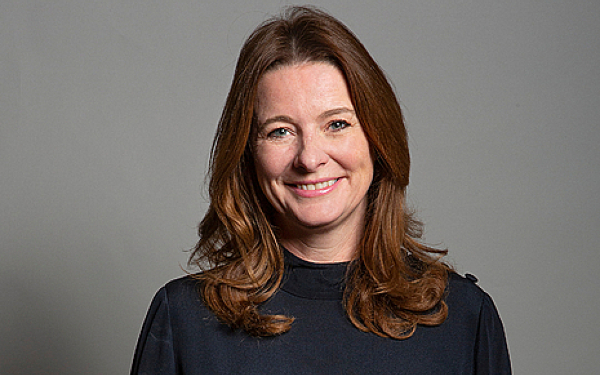
By Mithran Samuel and Anastasia Koutsounia
Children’s social care has been handed its fifth secretary of state of 2022, while the minister with direct responsibility for the sector has quit after a month, despite it facing one of its biggest policy shake-ups in many years.
Prime minister Rishi Sunak appointed Gillian Keegan to the education secretary post this week, succeeding Kit Malthouse, James Cleverley, Michelle Donelan and Nadhim Zahawi, all of whom have held the role – which has overall responsibility for children’s social care – this year.
And yesterday, Kelly Tolhurst announced she would be stepping down as minister for schools and childhood – a role with direct responsibility for children’s social care – just one month after she was confirmed in post. This means there will be a fourth children’s minister of the year, when Tolhurst’s successor is announced.
The turbulence at the top of the Department for Education (DfE) comes despite four major reports having been produced this year on reforming children’s services, all of which are awaiting response from the government.
Proposed sector shake-up
The DfE had committed to responding to three of these – the Independent Review of Children’s Social Care’s final report, the Child Safeguarding Practice Review Panel’s inquiry into the murders of Arthur Labinjo-Hughes and Star Hobson and the Competition and Markets Authority’s study of the children’s social care market – before the end of 2022.
However, it is not clear how far this timetable will hold under new prime minister Rishi Sunak.
Last week, a fourth key report was published on children’s social care, from the seven-year Independent Inquiry into Child Sexual Abuse, which the Liz Truss government – in one of its final acts – committed to respond to within six months.
Social care reform proposals
- Independent Review of Children’s Social Care (May 2022): this proposed increasing social worker skills and retention by introducing national pay scales, tied to progression through an early career framework and the introduction of expert practitioner status for those who complete the framework, along with increased investment in early help and kinship care, the abolition of the independent reviewing officer role and regional commissioning of care placements to reduce big providers’ hold on the market.
- Child Safeguarding Practice Review Panel inquiry into Arthur Labinjo-Hughes and Star Hobson murders (May 2022) – this called for the creation of multi-agency safeguarding hubs to lead child protection cases, in order to improve inter-agency working and practice skills.
- Competition and Markets Authority study of children’s social care market (March 2022) – this urged the creation of national and regional bodies to help councils find the right placements for children, improve value for money and reduce out-of-area placements, and a shift in provision from independent fostering agencies to council-run services, also to improve value.
- Independent Inquiry into Child Sexual Abuse (October 2022) – this proposed placing a duty on professionals and others in close contact with children to report child sexual abuse, to tackle under-identification of CSA, the creation of Child Protection Authorities for England and Wales to improve practice and advise governments on policy and the professional regulation of children’s home and youth custody staff.
Keegan has experience of social care, having had responsibility for adults’ services in the Department of Health and Social Care (DHSC) from 2021 until last month.
However, her appointment to the helm of the DfE is being seen as sharpening the department’s focus on skills, vocational training and apprenticeships, alongside its traditional prioritisation of schools. Keegan left school at 16 and then did an apprenticeship, and was also apprenticeships minister from 2020-21.
Significant demand and financial pressures
It is unclear where this leaves children’s social care, at a time not only of policy change but also significant financial and demand pressures.
These were made clear in the two reports this week:
- The DfE’s annual children in need statistics showed that the number of referrals to children’s social care rose by 8.8% in 2021-22, on the previous year, to 650,270, the number of children in need rose to 404,310 as of March this year, up 4.1% on the year, and the number of child protection enquiries rose by 9.6%, to 217,800, the highest since records began.
- A paper by the County Councils Network cited government figuers showing councils overspent their looked-after children’s budgets by £450m (9% of the total) last year, and urged the government to invest the £2.6bn over the next five years proposed by the care review to reverse the rising numbers of children in care.
However, the situation comes with the government working out how to fill an estimated £30bn to £40bn black hole in the public finances in its autumn statement, due on 17 November. This has led to fears that the situation for social care could worsen if the government seeks to make savings from local authorities and does not go ahead with new investments as proposed by the care review.


 Family help: one local authority’s experience of the model
Family help: one local authority’s experience of the model  ‘I spent the first three months listening’: how supportive leadership can transform children’s services
‘I spent the first three months listening’: how supportive leadership can transform children’s services  How senior leaders in one authority maintain a culture of excellence
How senior leaders in one authority maintain a culture of excellence  How staff support ensures fantastic outcomes for children and families
How staff support ensures fantastic outcomes for children and families  Workforce Insights – showcasing a selection of the sector’s top recruiters
Workforce Insights – showcasing a selection of the sector’s top recruiters 

 Facebook
Facebook X
X LinkedIn
LinkedIn Instagram
Instagram
Comments are closed.